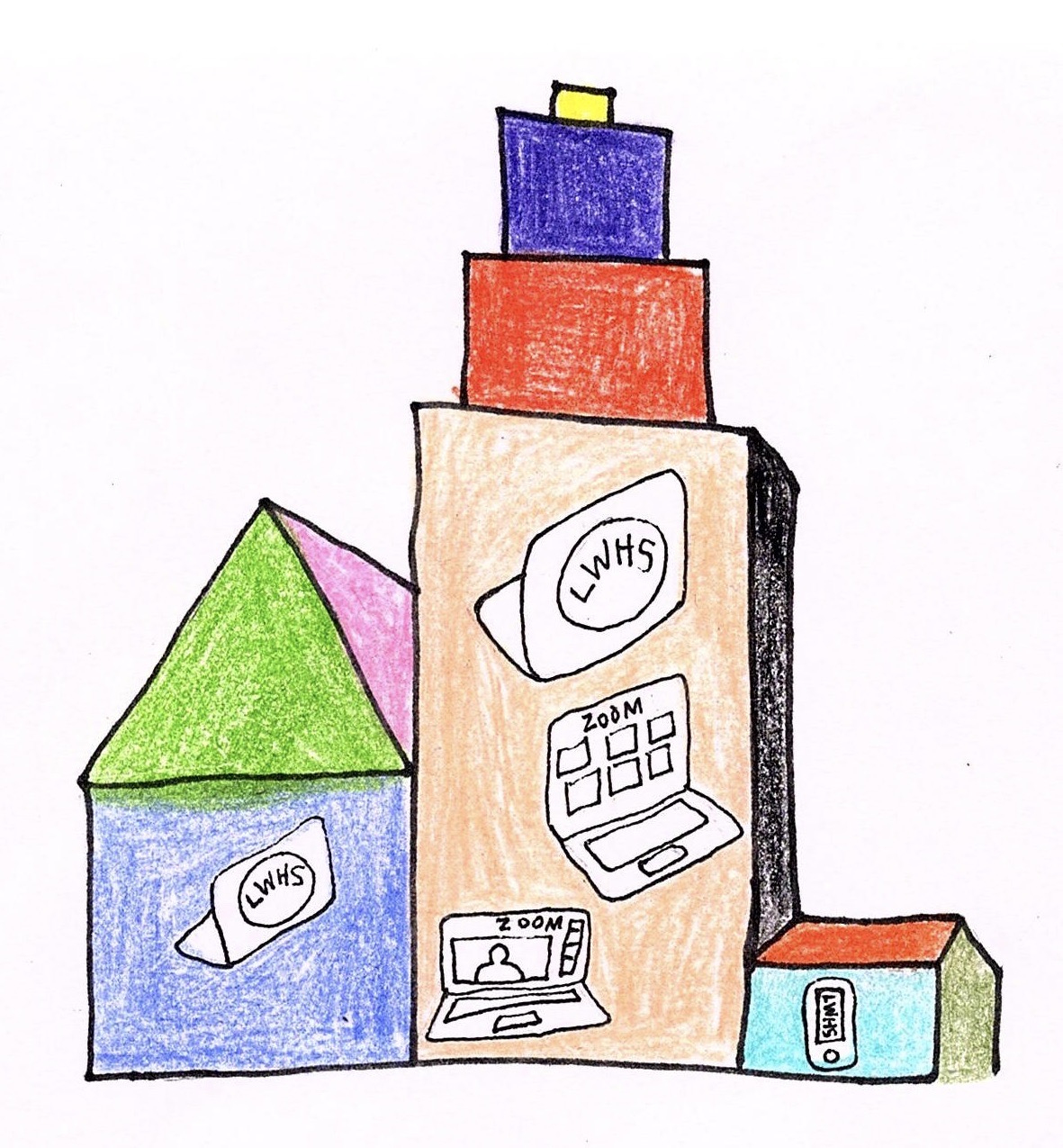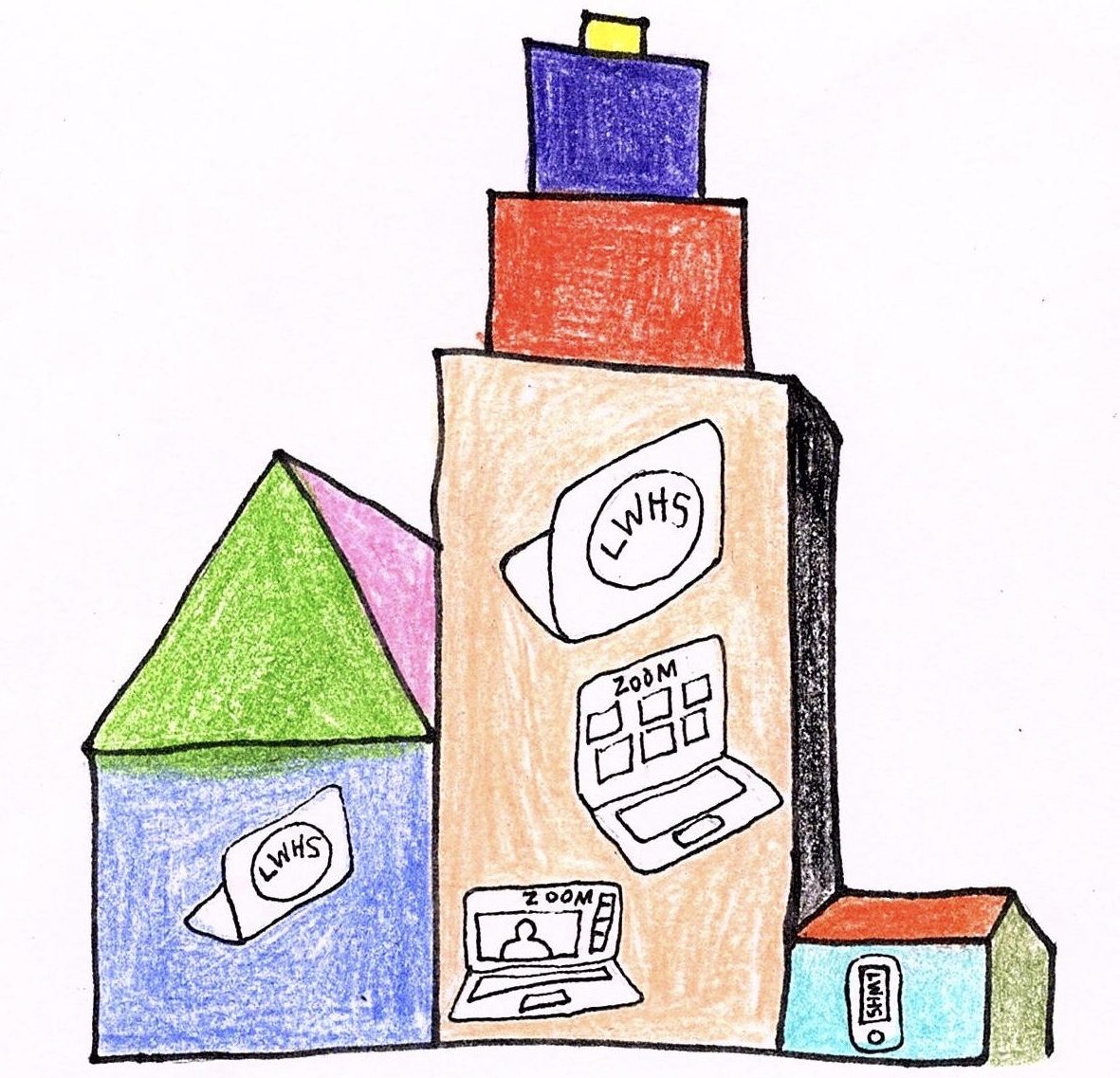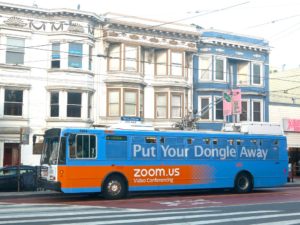
illustration by Roma Edwards
As distance learning continues, the complete change in school environment has meant that institutions, including Lick-Wilmerding, have had to reevaluate nearly every aspect of students’ education. Among these new considerations are how equity and inclusion issues
at Lick are examined and addressed by the school administration.
According to Director of Student Inclusion Naomi Fierro, COVID-19 has forced Lick to consider “the student beyond the walls of the classroom.” This involves remembering that while students are continuing to learn, there are new factors that “impact the way they show up to learn,” said Fierro. Some students are caretakers of family members,
including siblings and elders. Others may live in trauma deserts or food deserts.
Fierro explained that public schools have been considering factors like these for years and it’s important to think about them despite our position as a private institution.
In order to better understand the school community during this time, Fierro explained that the administration needs to continue to build stronger relationships with students. “The better we build those relationships, the more that we’ll know when a community member is hurting or in need of something,” Fierro said.
Dean of Adult Equity and Inclusion Tamisha Williams has been communicating with some
families to check in on how they are doing, for example.
Communication with families, however, mainly revolves around the Daily Tiger, which is sent out daily after the school day ends. To make this more accessible and inclusive to all backgrounds, the communication department translates every Daily Tiger into Spanish. Fierro explained that this was “long overdue,” but a positive step forward. She hopes that in the future, the language translation will go beyond Spanish.
To assist families in more tangible ways, Lick has utilized the Fund for Success. It is open for all families to solicit, whether it is because they aren’t able to pay for rent or healthcare or put food on the table due to layoffs and financial strain. The fund also covers other forms of assistance, like academic tutoring, to support students’ needs at home. For families with food insecurities, Lick has been providing gift cards to pay for meals, especially for students who previously relied on school lunch.
According to a description provided by Director of Development Nancy Kehoe, “The
Fund for Success was established in 2010, when the school was awarded a grant from the Edward E. Ford Foundation to fund the META program. At the time, the Head of School, Al Adams, was completing his 23-year tenure, and the school raised money in Adams’ honor to establish the Fund for Success.” Previous to the COVID-19 pandemic, the fund was used in a variety of ways, from purchasing BART tickets for students to funding translation services.
Currently, Lick students learn and communicate with teachers through video calls. Home environments are exposed through this. Fierro said a major concern is that “there can be shame around one’s home, which is then a further indication of feeling shame around
your socioeconomic status.” 35% of Lick students are enrolled through flexible tuition and full tuition is nearly $50,000 a year, which means that differences in wealth between students can be drastic. This can lead to comparisons of wealth and judgment of peers. To address this, Lick has allowed students the ability to use virtual backgrounds and conceal their home environments.
Mental health is another factor that Lick has been considering.“This is a pandemic and some people may feel really insulated from the effects of that and others may not,”
said Fierro. People have experienced death and sickness in their families, and some students may not feel safe due to living in “toxic” households. For queer students, being “in a family that may not affirm your identity” can be difficult, noted Fierro.
The school has addressed this by keeping the counseling department accessible to all. From conversations with students, Fierro notes that she has seen “marked differences and changes in terms of better emotional health” in students who have reached out to the counseling department, which consists of Dr. Nikkia Young and Yuka Hachiuma. However, Fierro explained, this is not a perfect solution since some families may not support their students seeking access to mental health tools and treatment.
An alternate solution is offering students “moments to add some relief or engage in a
way that’s not necessarily just class,” explained Fierro. The Center, for example, has been offering hangouts during lunch for students to play games and just talk. There have been six hangouts since the start of distance learning and anywhere from 5-25 students attend each one. Student-led clubs contribute to outside-of-class activities as well.
Changing the grading and homework policy, however, has been the main solution to aid student mental health and take into account that the school does not know what difficulties students are experiencing. Additionally, for all students, acclimating to the new learning environment, which has more potential distractions, can be difficult. Homework for all classes is limited to 30 minutes and students’ grades cannot drop.
Through distance learning, inequities in technology access have also arisen. Before distance learning began, the school had to “think about all the technological tools that students can access on our campus that they won’t necessarily be able to access at home,” said Fierro. This includes computers, stable internet, and printers.
Director of Technology Adnan Iftekhar explained that the “school is committed to making
sure that all students, faculty and staff have the adequate equipment that they need in their homes.” The technology department, in collaboration with the Center for Civic Engagement, has mostly been sending wireless hotspots and laptops to both students and
FacStaff who have requested these resources. Iftekhar explained that the technology department has been “able to provide what has been asked for.” Thus far, around 40 to 50 students have reached out, which is more than during in-person schooling. Iftekhar hopes that this new visibility will help the technology department better support the community in the future.
The technology department has also been offering general help through its email,
help@lwhs.org. Students can send in technology questions and members of the technology department will respond with solutions or set up a Zoom meeting to further discuss the requests. The main requests have been to troubleshoot internet access and reliability.
Unlike most departments, whose availability is during school hours (8 a.m.- 4 p.m.), the technology department is available from 7 a.m. to 7 p.m. to remain accessible to students whenever issues may arise.
In order to prepare for distance learning, all members of the technology department retrieved equipment for their own homes, so they would be able to remotely support the school community. The school also had to purchase wireless hotspots before stores ran out and train FacStaff on how to use the new technology required, such as video calling applications. The technology department continues to offer direct help for FacStaff through regular drop-in cafes.
However, Iftekhar explained, it still has been difficult to provide support without physically being at Lick. “One big area to support is a lot easier than 650 smaller locations,” Iftekhar noted.
Lick’s support extends beyond the students; from a faculty and staff perspective, Fierro explained, she is thankful that “we have our jobs.” Fierro further explained that it is a
privilege for Lick FacStaff to be “in a place where we are able to access our computers and teach still, and there’s a lot of teachers in this city who do not have the same ability.”
Lick has been reaching out to FacStaff and asking “what support do you need at home to
be able to work effectively,” said Fierro. The school is willing to financially support FacStaff with any supplies that are needed. Additionally, Lick has provided adults with the opportunity to teach summer enrichment programs on campus. Fierro explained, “[FacStaff] will be getting paid, so it is an extra form of income.”
COVID-19 has forced Lick to change its ways and reconsider how both students and FacStaff need to be supported. Fierro hopes that this will continue beyond the current school year. She wants translation services of newsletters to continue and adults “to be more proactive in reaching out to their students.” Overall, she hopes that Lick will “continue this level of care that we’re providing.”







